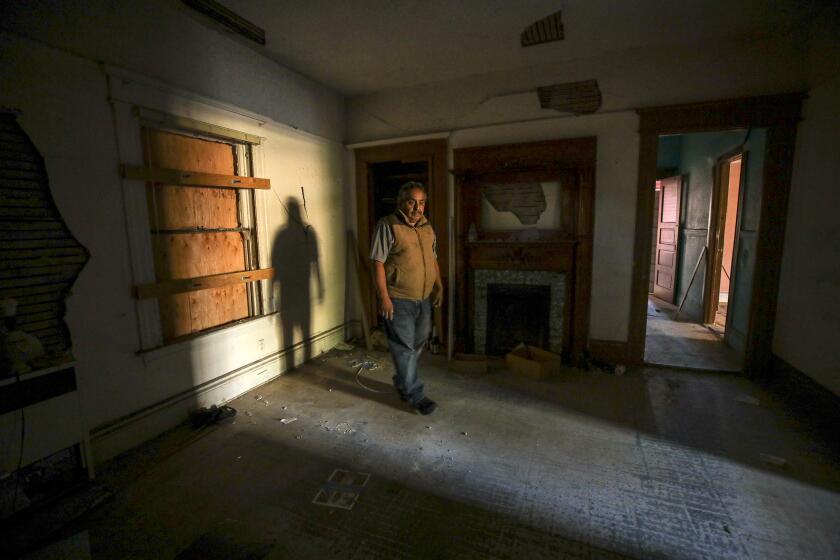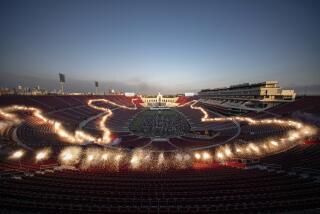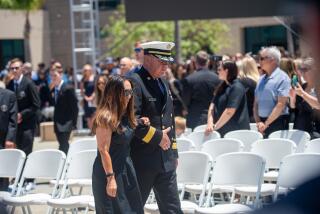LAPD bomb technician’s warnings were ignored before ill-fated fireworks detonation, report finds
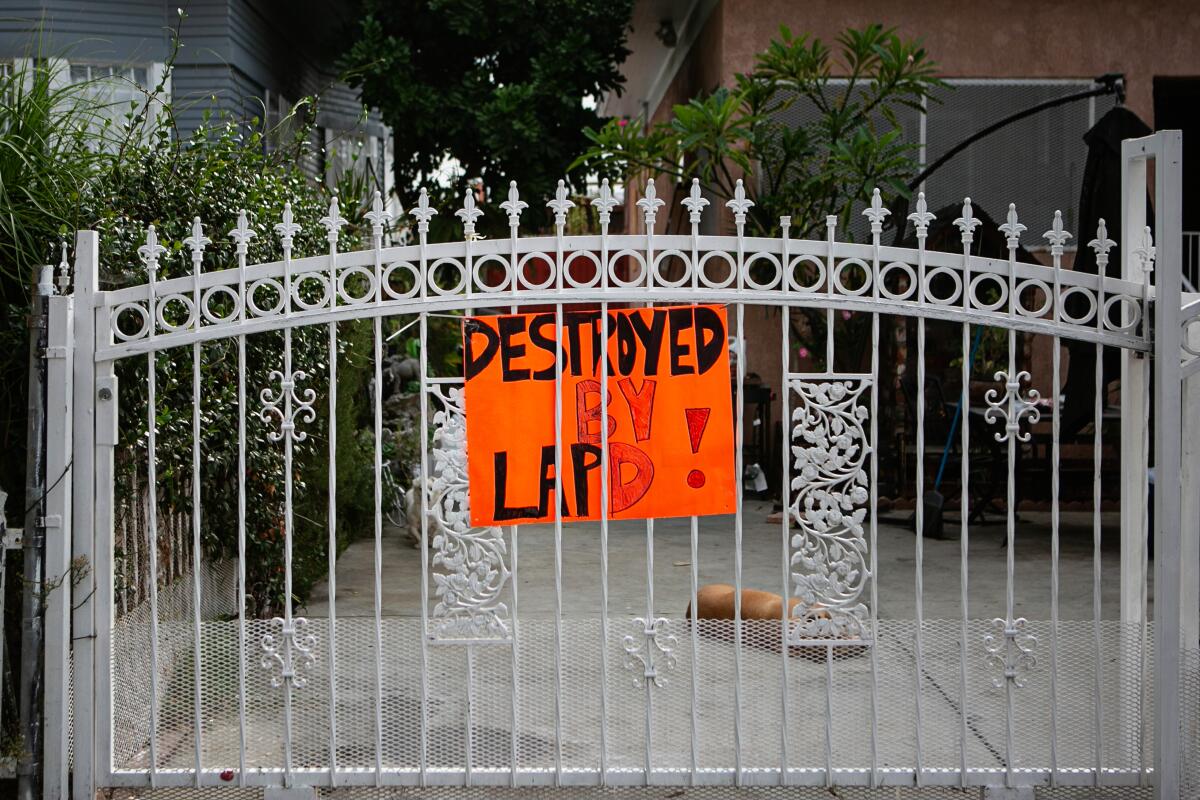
Before members of the LAPD bomb squad destroyed part of a South L.A. neighborhood by exploding a stash of illegal fireworks last summer, they repeatedly ignored warnings from one of their most experienced technicians that the plan was not safe, according to a new report by the LAPD’s inspector general.
The member who raised concerns, identified only as “Bomb Technician C,” told investigators with the U.S. Bureau of Alcohol, Tobacco, Firearms and Explosives that he had flagged both the volume and weight of fireworks being placed into the LAPD’s “total containment vessel,” or “TCV,” as excessive and too powerful for the vessel to control all at once.
“Based on my experience and everything, I said, uh, this is too much to do one shot, we’re gonna break them up, right?” the technician recalled saying to a colleague.
He said his colleagues and his supervisor told him that he was wrong and that he should “relax,” and the fireworks were loaded into the vessel all at once anyway, the inspector general found.
“They basically told me that they had already done the calculations, that they were well under the net explosive weight that the TCV could handle,” Technician C told investigators.
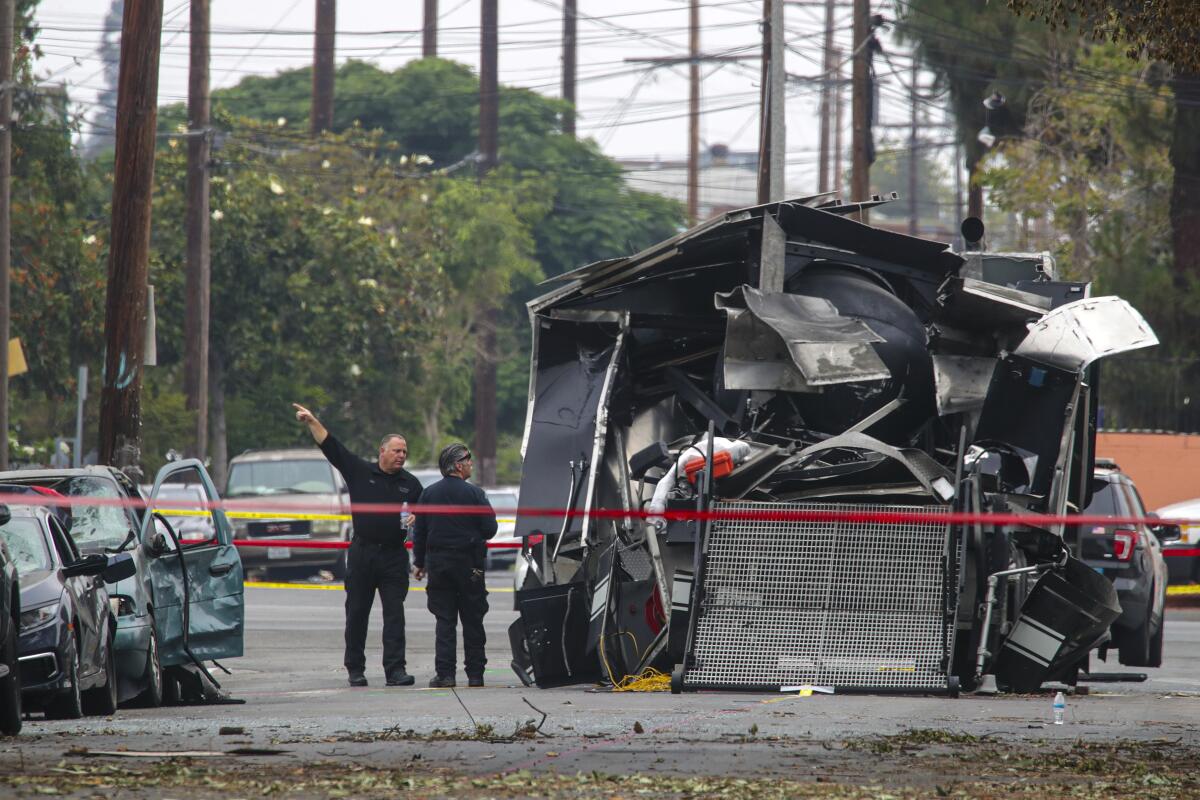
Later, he said, he told a colleague measuring out a counter-charge, “I have a bad feeling … this is not good … this is too big,” and was again ignored.
The subsequent blast, on June 30, ripped open the containment vessel and destroyed much of the surrounding neighborhood, damaging nearly 40 vehicles and 35 properties, injuring 17 people and displacing dozens more residents — many of whom have never returned.
The ATF later found that the bomb squad had indeed badly miscalculated the explosive power of the fireworks placed into the containment vessel — overloading it just as Technician C had warned.
The report by Inspector General Mark Smith, which outlined the overlooked warnings for the first time, was published online Friday along with the agenda for the Police Commission’s next meeting Tuesday. The commission will discuss the report with police officials then.
Smith declined Friday to comment in advance of the meeting. The Los Angeles Police Department did not immediately respond to a request for comment.
In addition to outlining the warnings, Smith’s report concluded that “a lack of supervision and a failure to utilize best practices at the scene of Bomb Squad calls had become somewhat of an accepted practice,” and that the bomb squad supervisor, identified only as “Detective A,” had “failed to recognize numerous indicators that this incident required a higher level of supervision than that which was provided.”
The explosion’s aftermath underscored a painful truth about life in Los Angeles, a region where formerly working-class neighborhoods are rapidly gentrifying as the population grows but the available housing stock does not.
Detective A told investigators that he had heard Technician C raise concerns once but had left it to his team to work through those concerns and thought that they had been addressed before the detonation.
The report outlines a long list of recommendations for the department and bomb squad, including improvements in communication, documentation, the chain of command, and protocols for calculating the power of explosives, as well as additional training for bomb squad members.
It called for the designation of a safe site within the city where dangerous explosives could be transported for detonation away from residential areas, and for the department to establish protocols to consider the fatigue of bomb squad technicians who have been on scenes working for hours — as was the case before the June explosion.
It also called on the department to “undertake a proactive and concerted effort to instill a culture” within the bomb squad that “ensures bomb technicians are given a forum to fully share dissenting opinions on tactics while in the field”; that “encourages supervisors to take an active role in planning and decision making, and calls on them to thoroughly consider and analyze the opinions of their subordinates”; and that “emphasizes and reinforces precision and technical expertise on the part of all Bomb Squad personnel.”
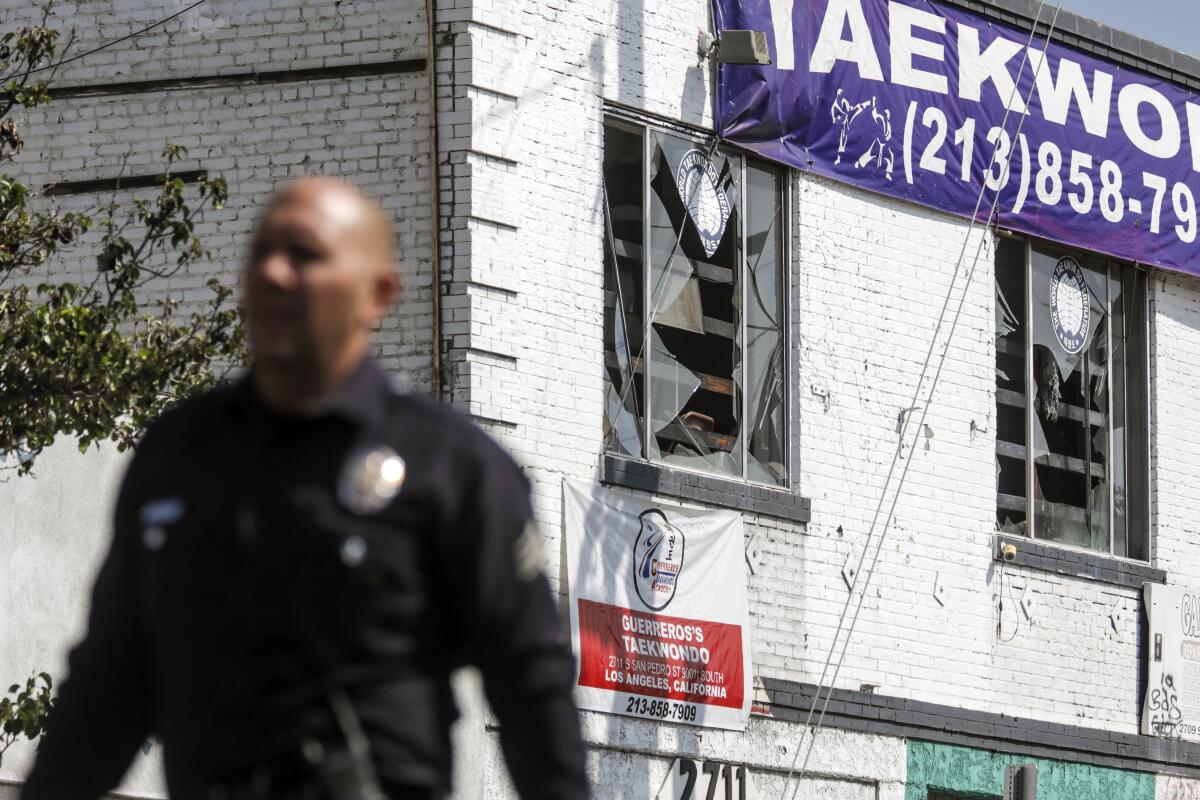
Damage from the explosion in the 700 block of East 27th Street have been estimated in the millions, and the city has set aside $5 million in recovery funds to help businesses and homeowners get back on their feet.
Activists have condemned the actions of the LAPD, suggesting such a careless detonation never would have happened in a more affluent neighborhood. They have also suggested the deaths of two older residents on the block in the following days were caused by the blast and its disruptions to their lives, though officials have denied such connections.
Ron Gochez of Unión del Barrio, which has helped organize community members affected by the blast, said the findings in the latest report reiterated the degree of negligence shown by the LAPD in the lead-up to the explosion.
He also reiterated community demands that the department identify the bomb squad members involved in preparing the fireworks for detonation.
“We want to know who are these people who obviously exhibited negligence by not listening to one of the most experienced agents who was there,” Gochez said. “These people need to be held responsible.”
The LAPD has declined to identify the officers involved.
The inspector general’s report also does not identify them but says they have been on paid administrative leave or station duty since the explosion, and will remain so until personnel complaint investigations into their actions are concluded.
More to Read
Sign up for Essential California
The most important California stories and recommendations in your inbox every morning.
You may occasionally receive promotional content from the Los Angeles Times.
